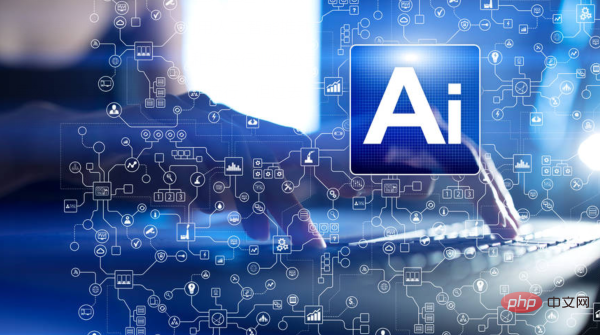Home >Technology peripherals >AI >How companies can use artificial intelligence to drive sustainable development
How companies can use artificial intelligence to drive sustainable development
- PHPzforward
- 2023-04-12 15:49:031111browse

Sustainability and digitalization are like twins, they go hand in hand. They all have the potential to change the way businesses operate and the way people work, in any role and at any level.
In particular, artificial intelligence is a key tenet of sustainability and digitalization, giving businesses real-time visibility and a wealth of insights on their winding path to net zero.
However, time waits for no one, and if companies don’t start deploying talent alongside AI now, the challenges of achieving sustainable development will only multiply. After all, time is of the essence, and the IPCC states that we must halve emissions by 2030 to stop irreversible climate change.
Reducing emissions, human-made or not, requires serious wisdom
Let’s be clear, clean energy and efficient energy management are key to combating the climate crisis. The true value of AI in energy management emerges when technology is combined with human expertise. When energy market experts are empowered with data-based insights and digital technology, we can achieve better corporate strategies, faster decision-making and greater operational efficiencies.
Artificial intelligence is still a relatively new field, and many may still think of it as a theoretical subject that does not yet offer practical solutions.
However, the reality is that over time we have applied artificial intelligence to analyze, simulate, test, use logic, learn, predict and adjust. These capabilities can help businesses and society improve energy efficiency and decarbonize.
How Artificial Intelligence Improves Energy Management
Improve energy efficiency: Businesses collect large amounts of data that can be used to improve efficiency. Turning this data into insights can be a challenge, but artificial intelligence can help solve this problem. AI can accurately track and predict consumer trends, note where changes need to be made, and automatically fine-tune systems to ensure optimal efficiency. It can also help businesses respond immediately to demand response opportunities and increasingly frequent disruptions caused by extreme weather.
Energy Diversification: Artificial intelligence can support companies to introduce renewable energy and control their carbon emissions, thus providing better opportunities for clean energy in the market. Businesses that produce their own renewable energy can apply artificial intelligence and predictive analytics to weather data to help determine peak generation times and optimize the use of distributed energy storage systems or batteries.
Impact the way you buy energy: Artificial intelligence can examine complex market trends and analyze data, develop plans to better manage energy spending, and reduce risk in volatile markets. The technology can also observe how and when businesses consume energy and support their trading decisions.
For example, companies that both consume and produce energy, known as prosumers, can be guided to make the best decisions on when to sell excess energy from their renewable energy sources. Good decision.
AI helps us move beyond net zero
What does this look like in practice? Take the distribution center of Finnish retailer Lidl as an example. Here, AI-driven building management system software predicts and optimizes energy use. The system works in conjunction with resource management software to produce, consume or store energy where it is needed, saving 70% on energy costs. At certain times of the year, it can even exceed net zero by distributing excess energy to 500 nearby homes.
Helping to set fairer energy costs during the crisis
Another example that is particularly relevant today: the South Australian agricultural market is in some Days struggle with fluctuating tariff rates and negative pricing. Technology helps manage this volatility to optimize operations based on price signals.
Summary
Artificial intelligence will not solve all corporate sustainability problems overnight. However, it does provide excellent, flexible options for eliminating waste in multiple areas of your business. When aligned with a business’s overall sustainability strategy, AI can accelerate achievement, enabling business leaders to plan ahead, think creatively, and make data-based decisions.
We don’t have much time to take action, but businesses that start using artificial intelligence now to improve energy efficiency and reduce carbon emissions can have a significant positive impact on themselves, their employees and our planet .
The above is the detailed content of How companies can use artificial intelligence to drive sustainable development. For more information, please follow other related articles on the PHP Chinese website!
Related articles
See more- Technology trends to watch in 2023
- How Artificial Intelligence is Bringing New Everyday Work to Data Center Teams
- Can artificial intelligence or automation solve the problem of low energy efficiency in buildings?
- OpenAI co-founder interviewed by Huang Renxun: GPT-4's reasoning capabilities have not yet reached expectations
- Microsoft's Bing surpasses Google in search traffic thanks to OpenAI technology

